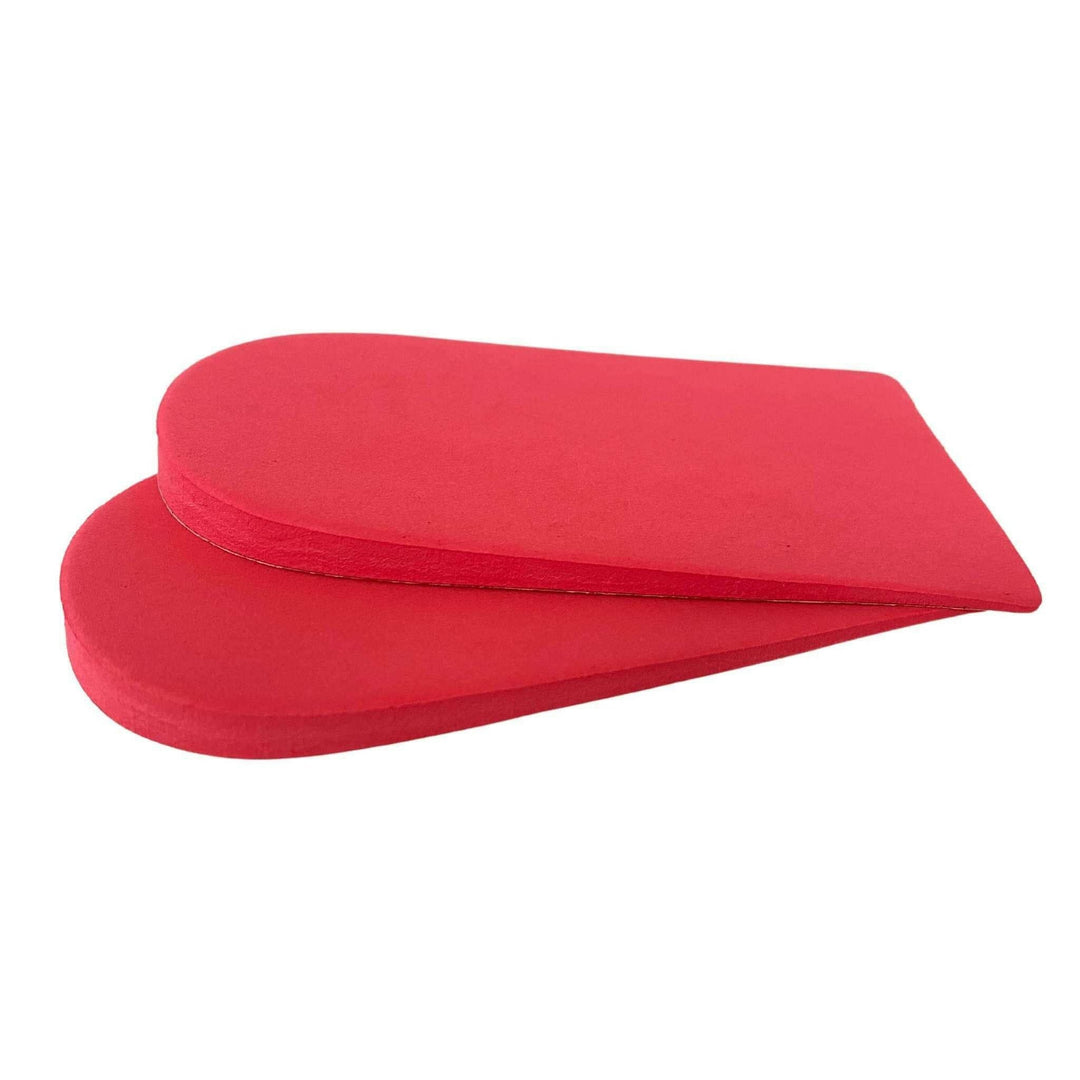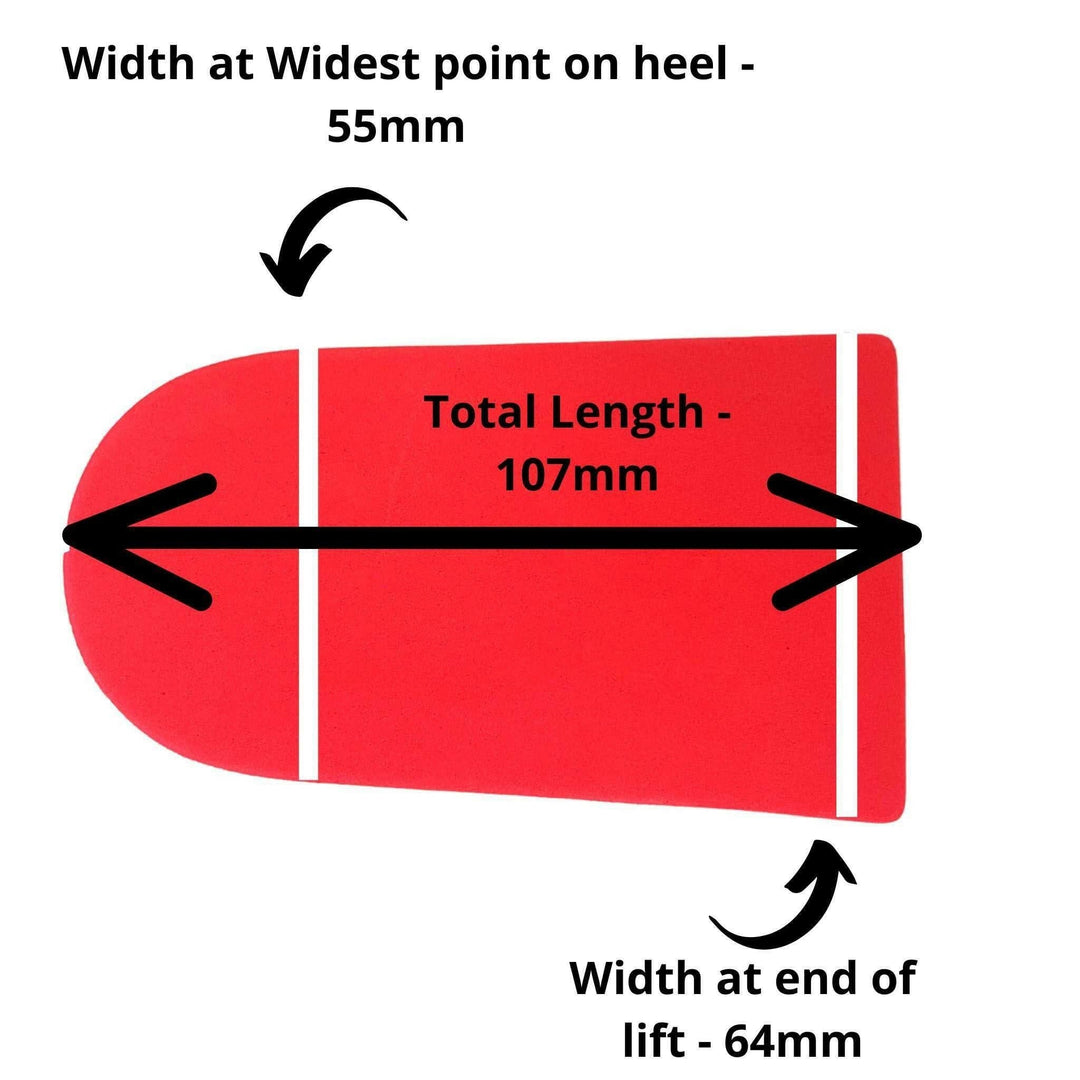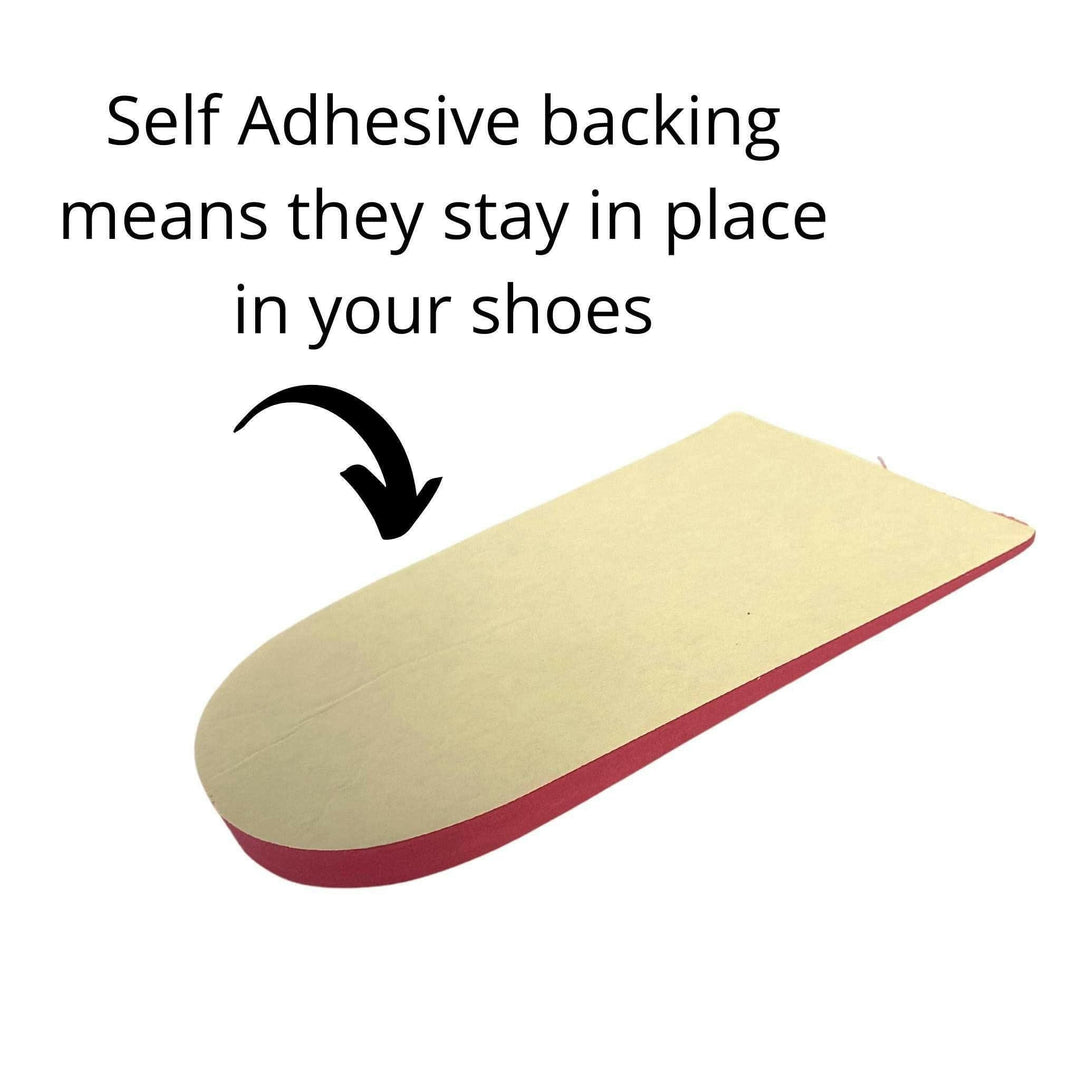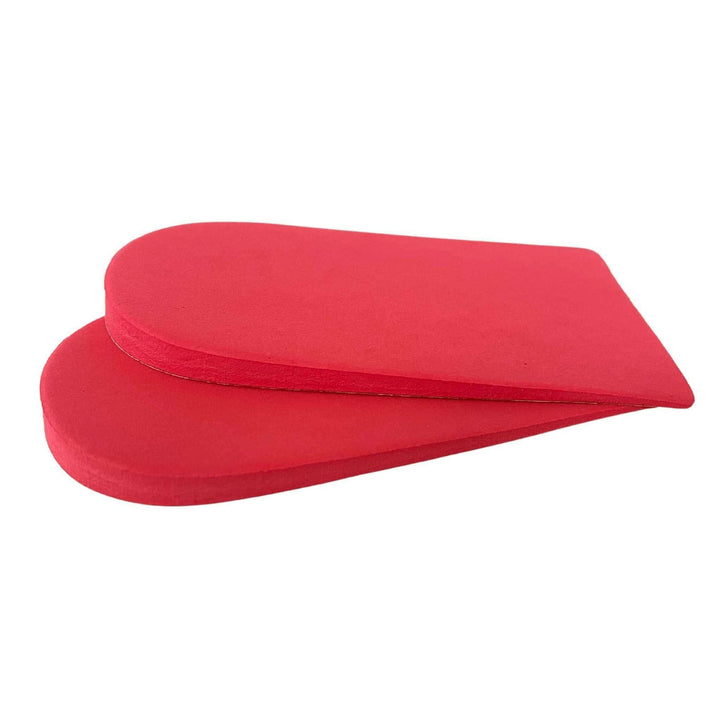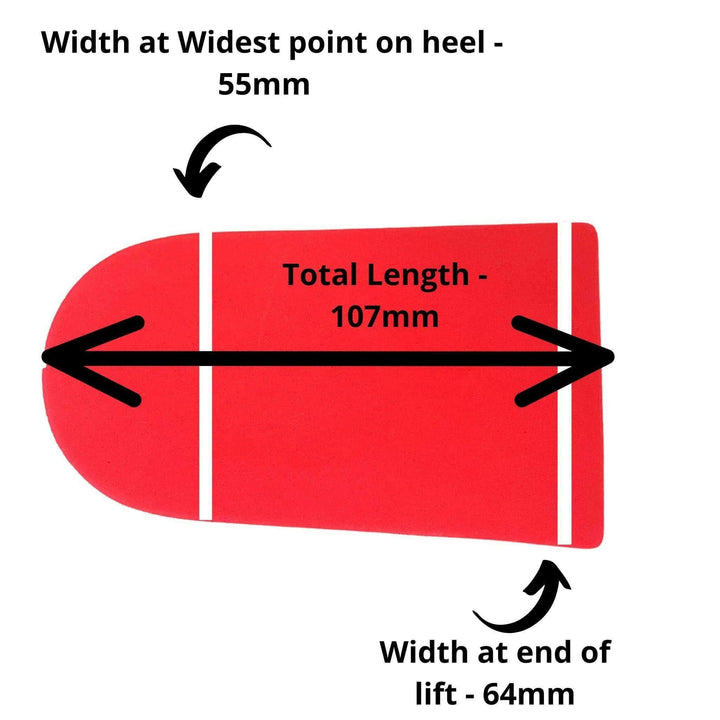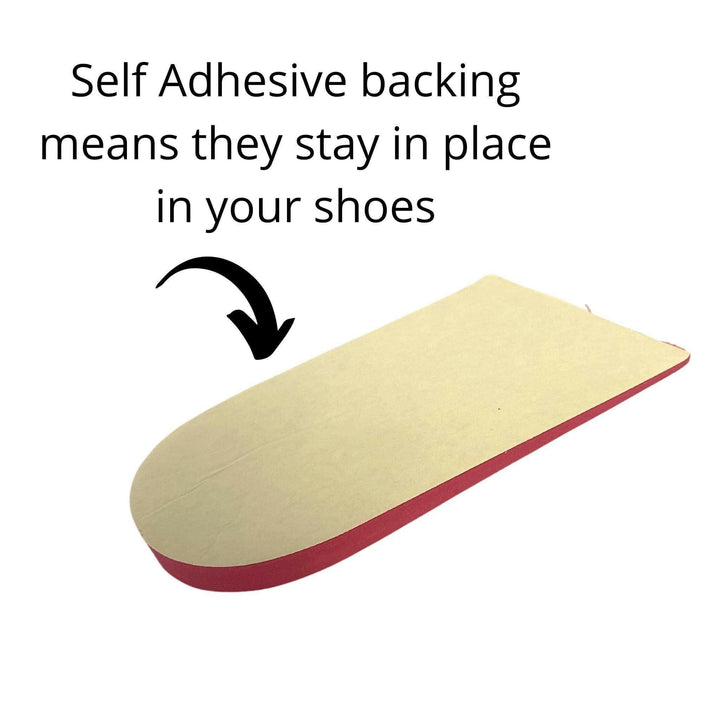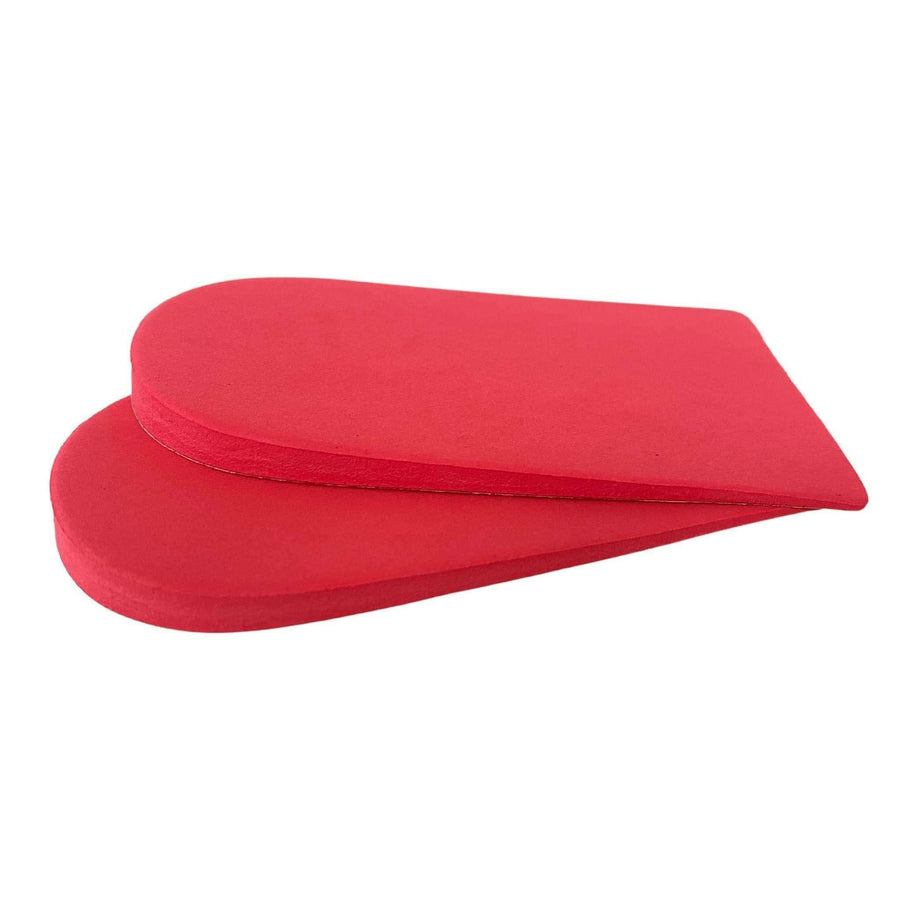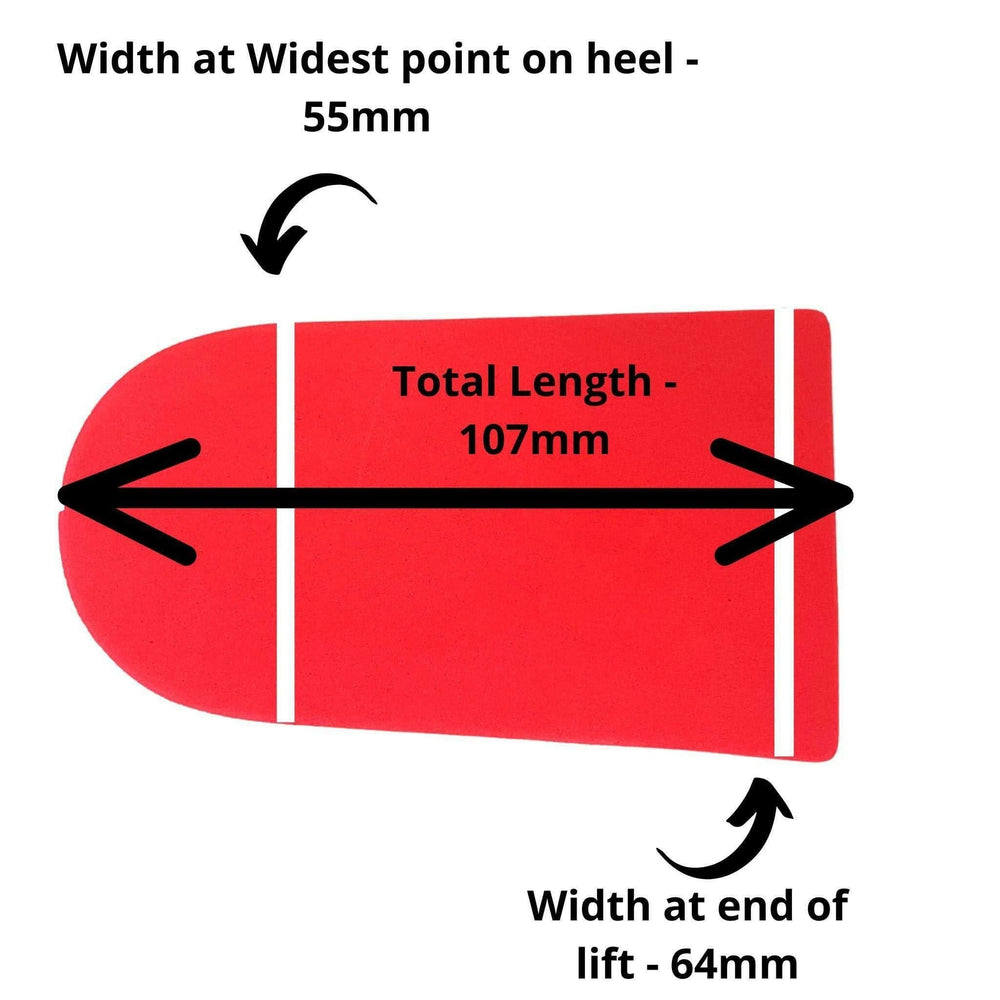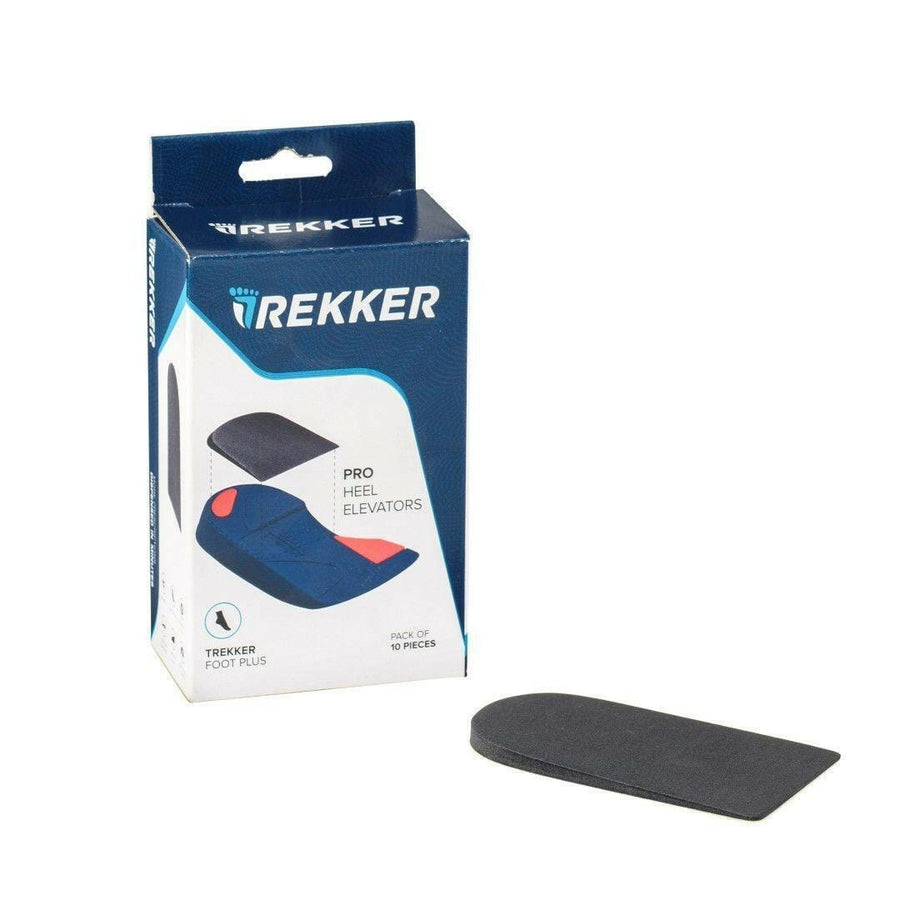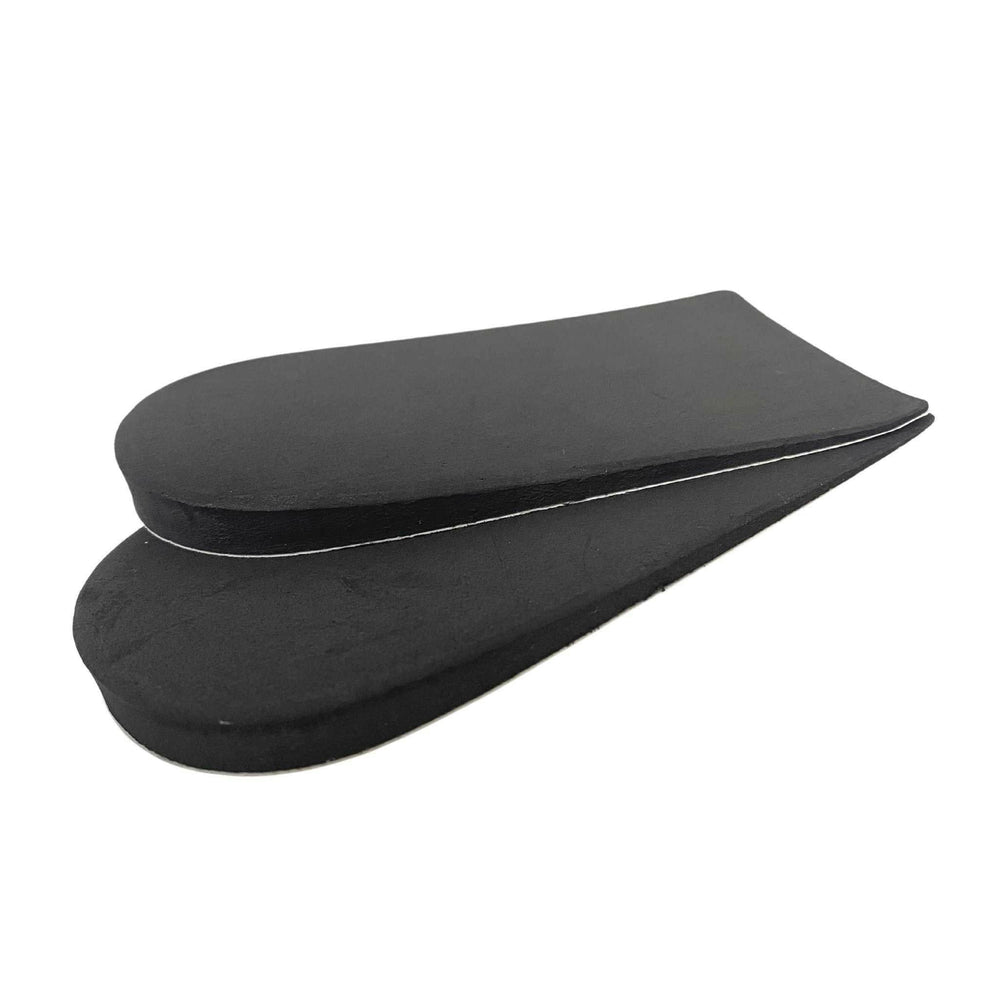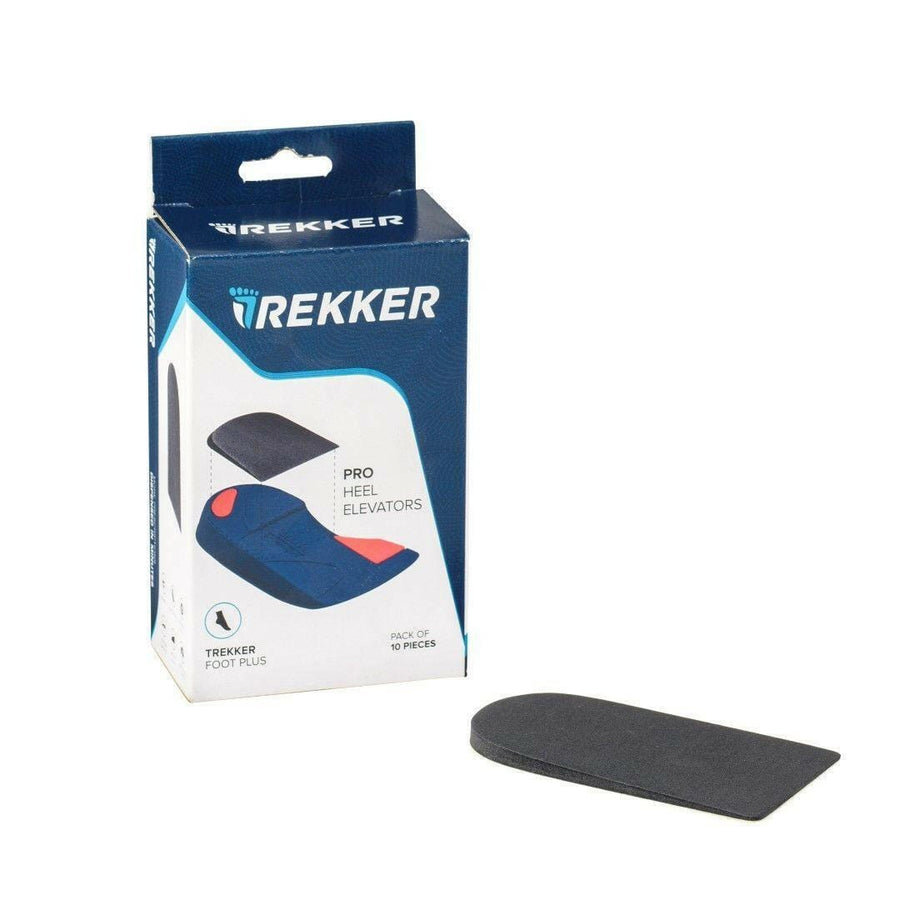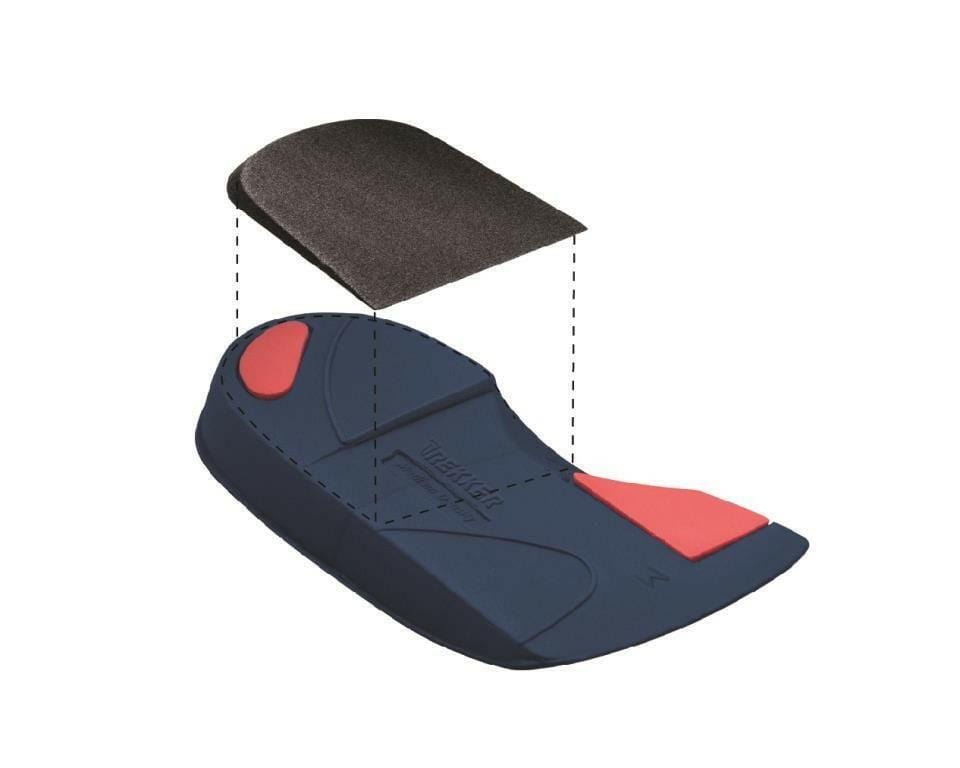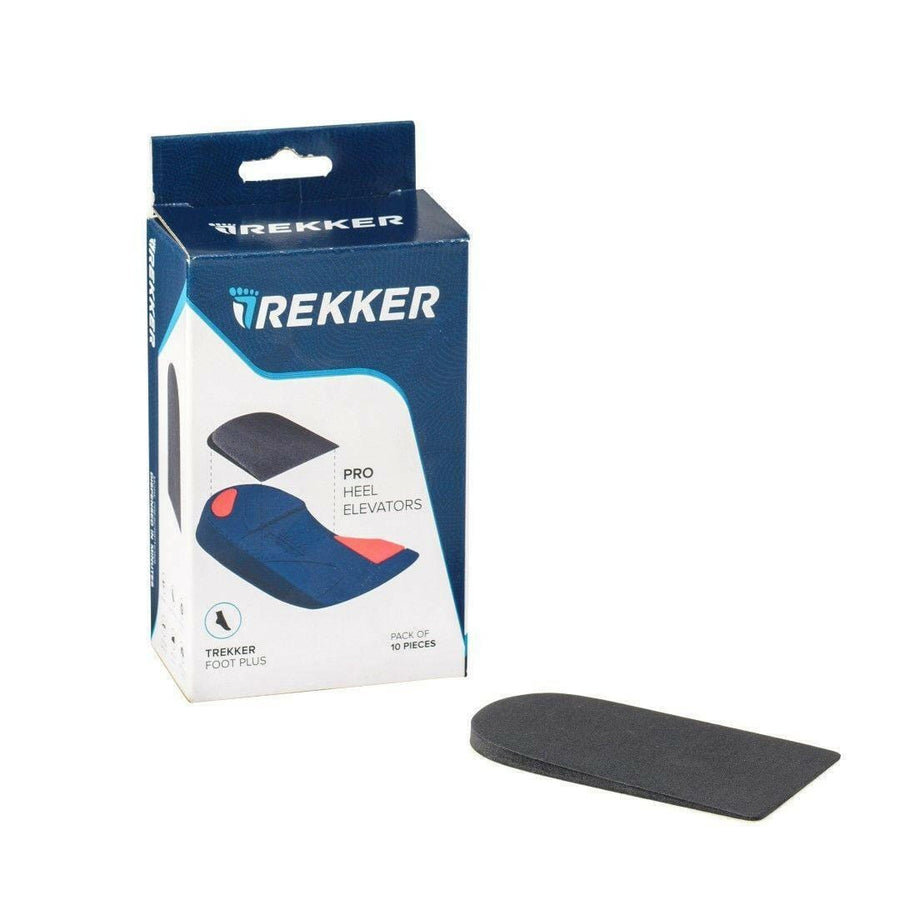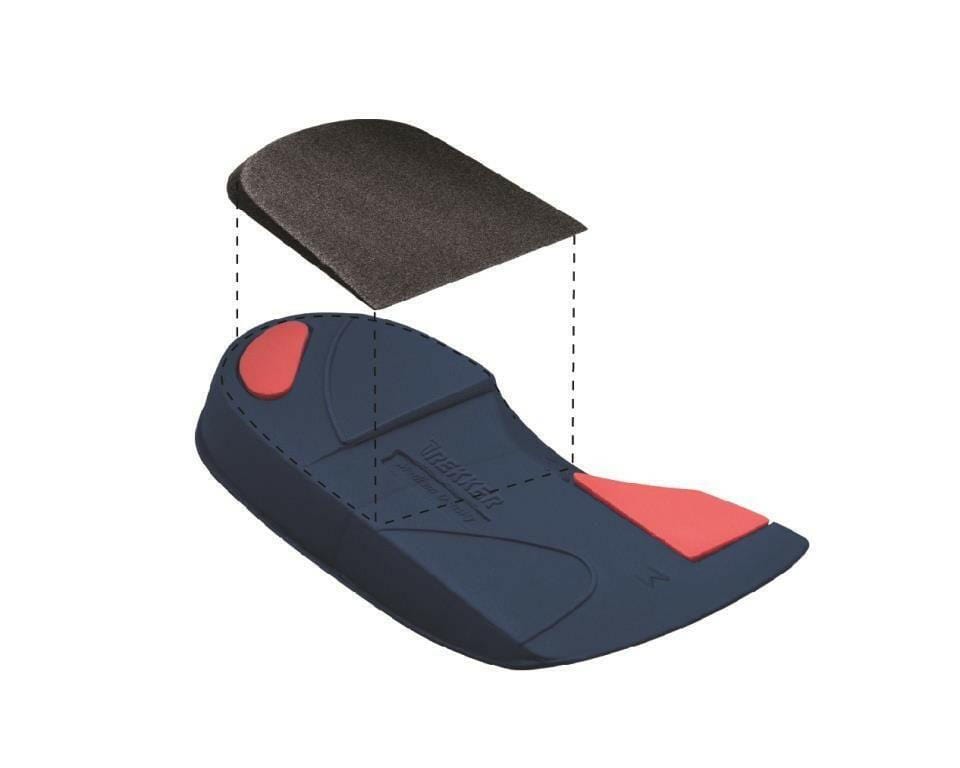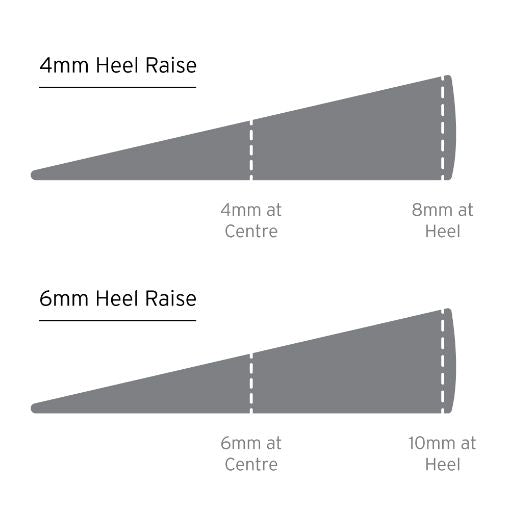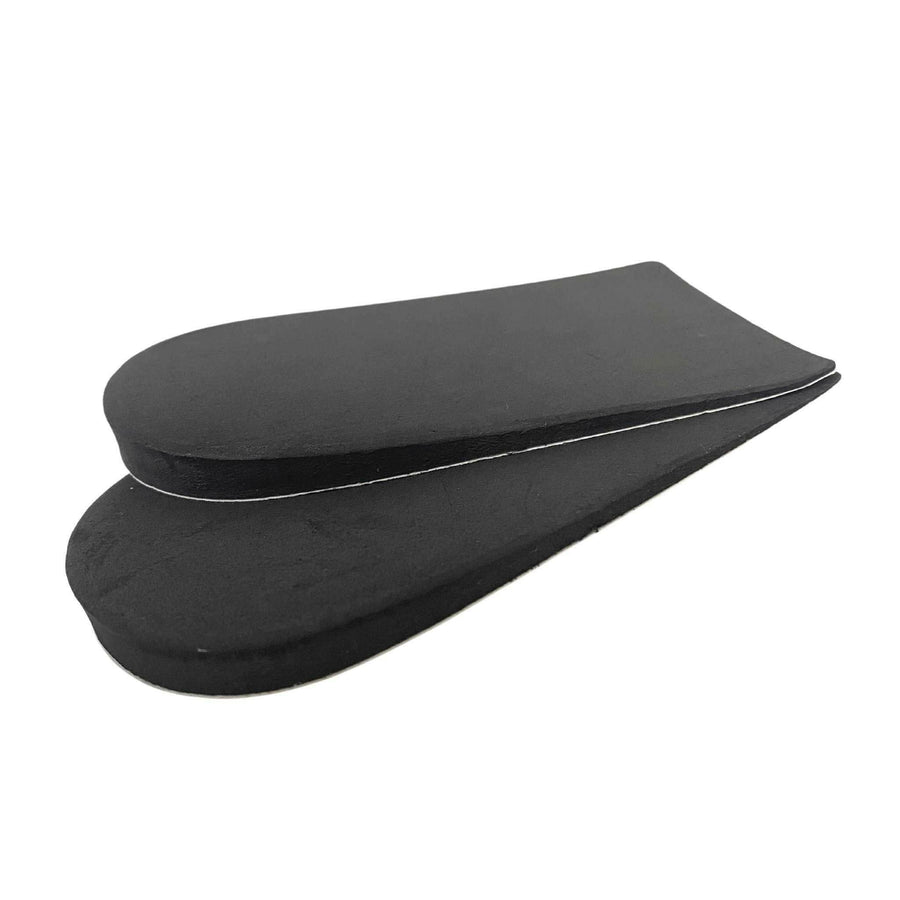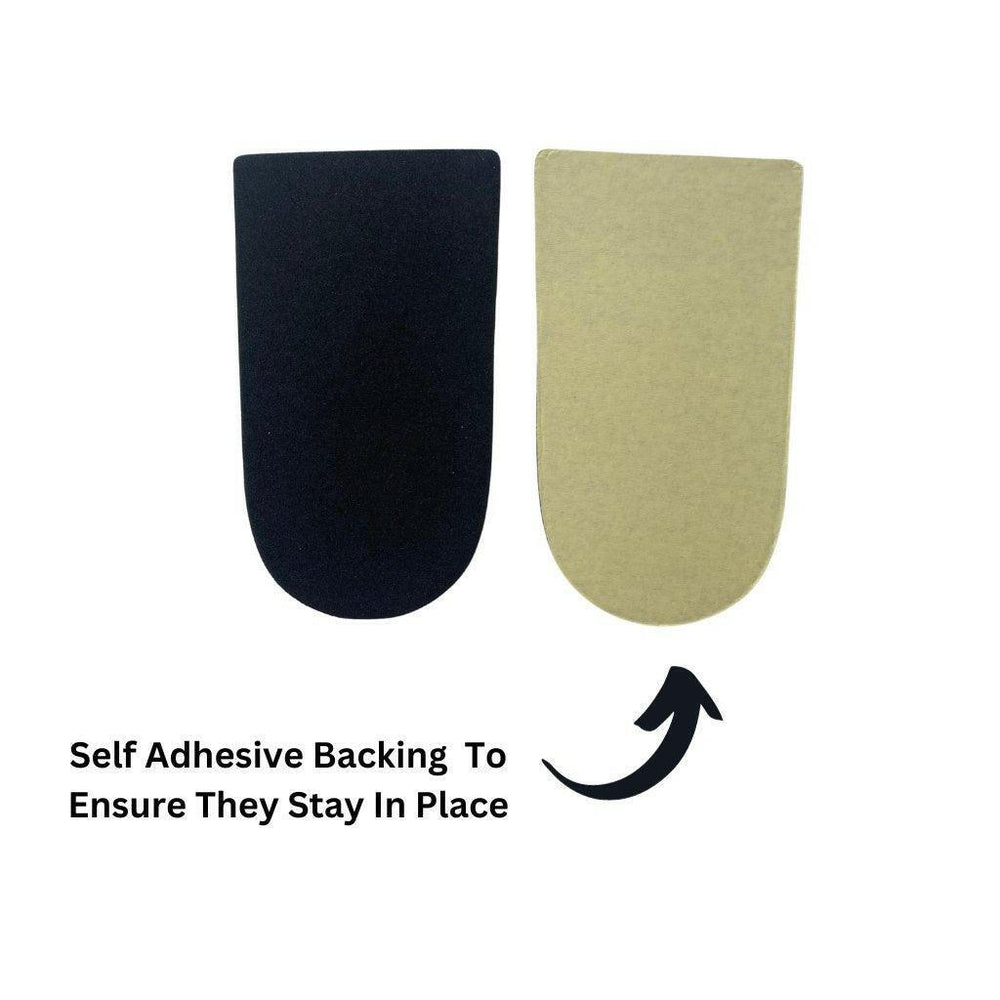Heel Lifts - 8mm x 1 Pair
How To Use Heel Lifts
Heel lifts are typically inserted into the heel of the shoe by sticking them underneath the insole of your shoe using the adhesive backing. Heel lifts are available in different heights and thicknesses. Heel Lifts are sold in pairs and as such mustalwaysbe worn under both heels unless you have a professionally diagnosed limb length discrepancy.
They may seem unassuming, but heel lifts can play an important role in taking the pressure and load off your feet and lower limb.
What are Heel Lifts?
A Heel lift are commonly used to address various foot and lower limb issues. They are typically made of high-density EVA (ethylene vinyl acetate) material and are placed under the heel of the foot to lift it off the ground. Heel lifts are used to reduce the weight and pressure placed on the tendons, muscles, and bones of the foot and lower limb, and can also help correct gait abnormalities.
A heel lift can be used to manage a variety of conditions, such as Achilles tendonitis, plantar fasciitis, heel spurs, leg length discrepancies, and other foot and lower limb issues. They are typically inserted into the shoe, either by sticking them underneath the insole using the adhesive backing, or by transferring them between different pairs of footwear without removing the adhesive backing. Heel lifts are available in different heights and thicknesses.
Heel lifts are a piece of high density EVA material which is used to aid particular presenting complaints. They may seem small and unassuming, but they can play an important role in taking the pressure and load off your feet and lower limb.
As the name suggests, they lift the heel of your foot off the ground to reduce the weight placed on your tendons, muscles and bones and to also readdress your gait. These heel lifts can be stuck underneath the innersole of your shoe or if you would like to transfer them between shoes.
What Types Of Heel Lifts Are There?
A Heel lift typically comes in different heights or thicknesses, commonly catagorised as low (around 4mm), medium (around 6mm), or high (around 8mm). The choice of heel lift height depends on the specific condition being addressed and the individual's needs and comfort.
How can a heel lift help?
There are many different ways that a heel lift can be beneficial for you. Below we have outlined some of the conditions a heel lift can help with.
Limb Length Difference:
Limb length differences can indeed lead to various issues, including pain in the back, neck, hips, and ankles, poor posture and balance, joint problems, stress fractures, soft tissue overuse injuries in the foot and ankle, and increased risk of falls and trips. Minor limb length differences of less than 5mm may not usually cause issues as most individuals can adapt and compensate for them. However, differences above 5mm can have a significant effect on an individual's gait, biomechanics, and foot and ankle alignment, and may require intervention.
Limb length differences can be classified into two types: structural limb length difference (SLLD) and functional limb length difference (FLLD). Structural limb length difference is caused by inequalities in bony structure, usually due to genetic or hereditary factors. Functional limb length difference, on the other hand, is characterized by unilateral asymmetry of the lower extremity without any actual shortening of the bony components of the limb. It may be caused by factors such as muscle imbalances, joint restrictions, or other functional issues.
Accurate identification of limb length difference typically requires a thorough assessment by a qualified healthcare professional, such as a physician, orthopedic specialist, or physical therapist. This may involve measurements, physical examinations, and possibly imaging studies to determine the extent and type of limb length difference. Once identified, appropriate management strategies can be implemented, which may include orthotic interventions, physical therapy, exercises, footwear modifications, or other treatments, depending on the individual's specific condition and needs.
It's important to consult with a healthcare professional for proper evaluation, diagnosis, and management of limb length differences to prevent potential complications and optimise functional outcomes.
Achilles Tendonitis:
A heel lift is often recommended to be worn under both heels as part of a comprehensive treatment plan for Achilles tendonitis. Achilles tendonitis is a condition where the Achilles tendon, which connects the calf muscle to the heel bone, becomes inflamed and painful.
A Heel lift can help alleviate pain and discomfort associated with Achilles tendonitis by reducing the amount of tension and stress placed on the Achilles tendon. They work by raising the heel, which in turn reduces the amount of stretch on the tendon during physical activity. This can help to reduce pain and inflammation and promote healing of the damaged tissue.
In addition to wearing a heel lift, other treatments for Achilles tendonitis may include rest, ice, physical therapy, and anti-inflammatory medications. It is important to consult with a healthcare professional for proper diagnosis and treatment of Achilles tendonitis, as well as for guidance on the appropriate use of heel lifts.
Plantar Fasciitis and Heel Spurs:
As explained previously, as heel lifts are used to take away force placed on the structures leading from the calf to the foot, they are also able to aid individuals suffering from Plantar Fasciitis and Heel Spurs. Always wear under both heels.
Heel lifts and Orthotics:
If an assessment by the Podiatrist has determined that a heel lift is recommended, it may also be recommended that an orthotic may be necessary to increase the efficiency of the foot and lower limb. A heel lift can be added externally to orthotics whether the orthotics are custom-made or off the shelf. Other components of the foot and lower limb must be considered and properly assessed just in case more is needed other than just a heel lift.
Heel lifts and ankle joint range of motion:
A heel lifts is an effective way to increase ankle joint range of motion for improved gait efficiency. Ankle joint dorsiflexion, or upward movement of the ankle, of more than 90 degrees is recommended for efficient walking. Limited ankle joint range of motion can be caused by issues such as anterior ankle impingement or tight posterior muscles like the calves or Achilles tendon. Restricted ankle dorsiflexion can result in increased pressure on the ankle, forefoot (ball of foot), knees, and hips.
A heel lift can help increase ankle joint range of motion by relieving the load on the calf muscles, Achilles tendon, and forefoot. However, it is important to consider other treatment modalities as well to address ankle joint range of motion, such as foot posture correction, mobilization, manipulation, and strength and conditioning exercises for the lower limb and foot. By incorporating a comprehensive approach, including a heel lift, into your treatment plan, you can optimize ankle joint range of motion and improve overall gait efficiency. Always wear under both heels unless advised otherwise by your healthcare professional.
Here are some essential precautions to keep in mind when using heel lifts:
1. Heel Lifts are sold in pairs and as such must always be worn under both heels unless you have a professionally diagnosed limb length discrepancy.
2. If you have a diagnosed limb length discrepancy follow the advice of your healthcare professional with regard to the amount of correction that is required for your individual needs.
A heel Lift provides relief for Achilles pain (tendonitis, tendinosis etc). All heel lifts come with a self-adhesive backing. Sold in pairs as must be worn under both heels to ensure correct limb length is maintained - unless you have been diagnosed with a limb length discrepancy which has been diagnosed by your health care provider
Before you use any product for health care, we advise that you consult your physician or primary healthcare provider and seek the appropriate advice and supervision prior to use.


